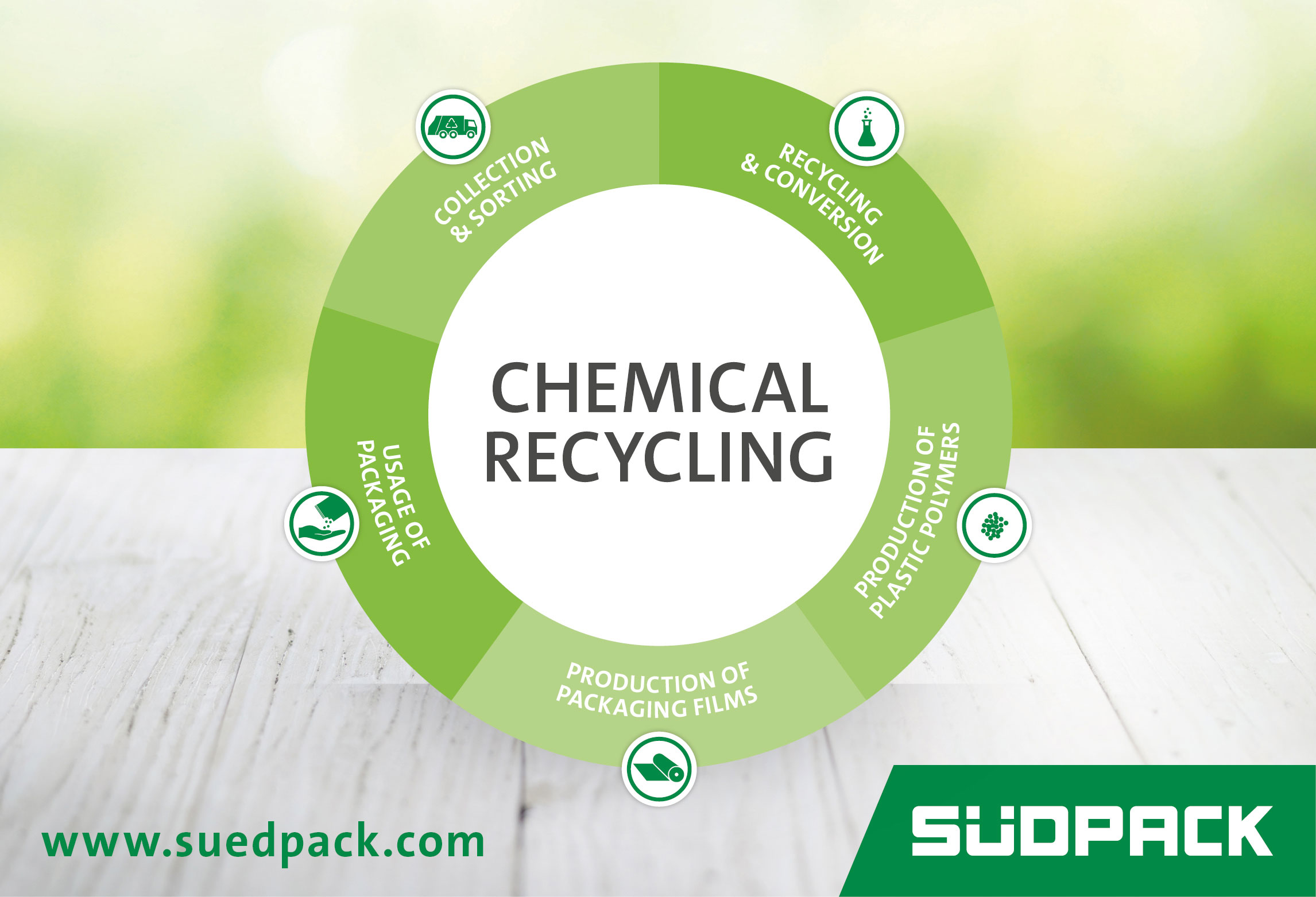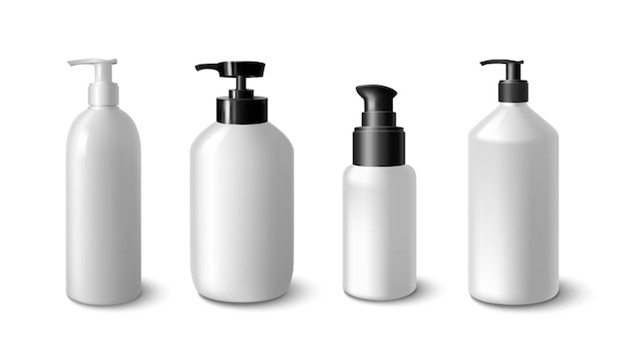
Some 65 percent of all packaging for food, pet food, and beverages is made from plastic. But currently only about 39 percent of packaging in Europe is recycled, with an additional 40 percent used to generate energy. In response, the EU and national governments have set ambitious targets for the volumes and percentages of packaging material that should go into a closed-loop system in the packaging industry. The targets demand a volume of 10 million tons of recycled plastic in new packaging by 2025. By 2030, all plastic packaging on the European market should be reusable or recyclable at low cost. And for composite packaging, the German Packaging Law requires a total recycling quota of 70 percent by mass as from 2022. SÜDPACK believes chemical recycling of plastic waste is a promising approach to meet these ambitious targets – and a way to develop a closed-loop model that actually works. Food manufacturers and packaging companies will also benefit from using the recycled material and complying with regulations. “As a market and innovation leader, we’re acutely aware of our social and environmental responsibility. That’s why we’re working hard on developing concepts, technologies and concrete solutions that save resources and protect the environment. However, it’s vital that all players in the value chain work together to really achieve positive change,” explains Carolin Grimbacher, Managing Partner and responsible for Research & Development at SÜDPACK. Chemical recycling makes it possible to re-use a much larger quantity of plastic. The process can also recover raw material from contaminated, mixed, multi-layer, or other plastics which cannot currently be recycled. The recovered material can then go into producing new plastics. Another advantage is that plastic made from chemically recycled material can be chemically recycled again without any loss of quality. Chemical recycling involves a high-temperature process in which complex waste plastics are converted into raw materials such as pyrolysis oil or synthesis gas. These are ideal substitutes for conventional crude oil at the beginning of the chemical production chain. The share of recycled material in the final products is calculated using a mass-balance method verified by an independent auditor. The materials have the same high quality and performance characteristics as new products. Chemically recycled materials are also suitable for the production of films which will be applied for packaging sensitive products such as food. This is an essential aspect for SÜDPACK, a company that prioritizes product safety not only for consumers, but also for the environment, and is committed to sustainability. The use of mechanically recovered recyclates is heavily regulated due to strict hygiene requirements, especially in the post-consumer packaging segment. PET flakes used in the middle layer of packaging films must come from EFSA-certified companies. At present, packaging made of 100% recycled plastic is not viable for sensitive goods such as food and medical products. The necessary legal framework is not in place, and the materials do not provide the special product protection and barrier properties required. “We won’t be able to do without composite films for food packaging in the future, even if we can use more and more recycled materials. That’s because the ‘enhanced’ recycling required by the German Packaging Law is not yet possible with these packaging materials. So we see chemical recycling as a useful addition to mechanical recycling and as a more sustainable alternative to thermal utilization or landfill,” says Carolin Grimbacher. The first pioneering projects have already transferred to the real world. For example, the packaging of Zottarella mozzarella products from the Gourmet Dairy Zott consists of a multilayer film from SÜDPACK that uses chemically recycled polyamide from BASF. This cuts the share of primary fossil raw materials in their production by around 25 percent compared to conventional materials. The highly innovative packaging for the new product line from poultry sausage brand Gutfried was developed jointly with Zur Mühlen Group (Gutfried), BASF, and SABIC. It also contains a share of about two thirds of chemically recycled plastic. The hygienic composite film packaging features the same high product protection and performance as new packaging, but with a far lower level of resource consumption. Carolin Grimbacher: “With chemical recycling, we can already significantly improve the resource efficiency of our solutions without any concessions in terms of functionality and safety.” However, SÜDPACK believes it will take several stages before the technology becomes a firm feature in the waste management industry. Another important step toward reducing plastic waste and pollution is the establishment of closed re-use cycles or recycling streams for flexible packaging. The regulatory framework will also play a key role on the path to market maturity. Developers need to find out how far chemical recycling and the mass-balance method can go toward meeting statutory recycling quotas. Both procedures also still have to acquire legal recognition. For SÜDPACK, the current trends are just the beginning. “We will continue to systematically push ahead with the development of new processes and technologies in the future. We’re committed to our goal of better, higher quality, and cheaper plastics recycling on an industrial scale,” says Carolin Grimbacher.







